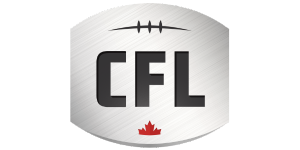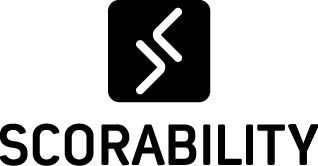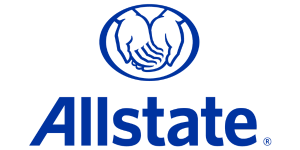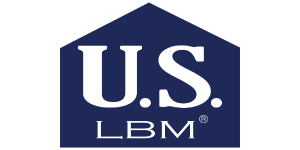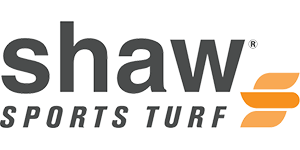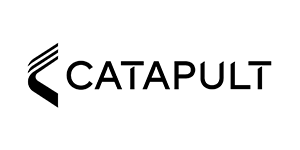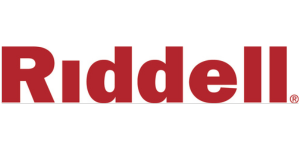
Your Offseason Workout: Clean Up Your Finances
May 12, 2024
Most coaches and football programs across the country have shifted from Spring Ball to the “offseason” by now. For some, that means hitting the road to recruit your favorite high schools or finalizing details on incoming transfer players. For others, it means taking a deeper dive into scouting next year’s opponents. For your players, they may be shifting gears away from the practice field and into the weight room for the summer to get their bodies in peak condition for the rigors that lie ahead next season which is a short three months away.
Just like you and your staff challenge your players to clean up the habits that affect their performance in the weight room and, ultimately, on the field, this article is meant to challenge you and your family to clean up the financial side of your life. Here are some good habits that we encourage our clients to build into their routines:
- Clean Up Your Accounts
Do you find it challenging to keep track of your various financial accounts? Many people have checking or savings accounts at one bank, a brokerage account with another and an individual retirement account with yet another. Having a number of accounts at different institutions can make your financial house feel disorganized.
Consider consolidating your accounts to gain a clearer understanding of your financial streams and overall wealth. Or, if you prefer to maintain accounts with different banks, take advantage of digital tools that let you see all of your accounts in one place. Getting that full picture can bring a fresh perspective about what you need to prioritize, as you manage day-to-day cash needs and pursue your longer-term goals.
- Declutter Your Debt
Do you ever feel like your debt is in disarray? If you have multiple loans and credit cards, with different interest rates and payment dates, it might be time to consider debt consolidation. Paying off your various debts via a single loan with a competitive interest rate not only helps you save money, it also leaves you with one simple payment date each month. This, in turn, may help reduce financial stress. You should work with a Financial Advisor who can tell you more about possible debt-consolidation strategies.
- Toss Out (Some) Paper
If you’re still getting paper statements from financial institutions, why not change your preferences to “paperless” notifications? This includes credit cards, loans, brokerage accounts—even bills. Going paperless reduces the amount of physical clutter in your home, and it’s also more ecofriendly. When you receive statements digitally, you can more easily track your finances because your statements are all in one place.
As for existing paper records, many institutions will allow you to upload important documents into a secure digital vault. Once you have a digital copy, you can generally shred the paper one. Records you should definitely keep (digitally if possible, but paper records if not) include the past seven years of tax documents and any documents related to still active loans.
- Organize Your Income and Expenses
When was the last time you took a long look at your monthly finances? Just as going through your whole closet can help you decide what to toss or keep, taking inventory of your income and expenses can help you cut wasteful spending and make smarter financial decisions.
With a clearer picture of your budget, you can more carefully track how much you are saving for near-term goals, such as buying a home, as well as long-term goals, such as retiring by a certain age.
For more help with budgeting, we encourage you to review our article featured in the March AFCA Newsletter: Budgeting After the Coaching Carousel – AFCA
- Plan for Future Tax Seasons
Some ease the burden of annual spring cleaning by scheduling deep cleaning days throughout the year. Similarly, tax planning may require your attention at multiple points throughout the year, not just during tax-filing season. Whether before or after Tax Day, it’s never too late to incorporate tax-efficient strategies into your financial plan.
Consider a combination of the following strategies:
Tax-loss harvesting: Involves selling securities at a loss and using such capital losses to offset capital gains in taxable investment accounts and help lower your taxable income.
Tax-aware asset allocation: Different kinds of accounts are taxed differently. A tax-aware asset allocation strategy that accounts for those differences may help to increase after-tax returns.
One way to execute this strategy is to position your more actively-traded portfolios is Traditional or Roth IRAs. Gains, dividends, and interest in Traditional IRAs are only taxed upon distribution while Roth IRAs offer tax-free growth under certain circumstances. Then, you may position your longer term, buy-and-hold positions in a non-qualified investment account in an attempt to build wealth until you sell those holdings and paying taxes on gains at that time.
Tax-favorable investments: Many investments, such as municipal bonds, tax-efficient mutual funds and 529 plans, may allow you to save for a variety of goals while also offering tax benefits.
When considering any investment strategy that may affect your tax situation, we strongly advise having your Financial Advisor and your qualified tax advisor collaborate about which strategies may work best for you. Quite often, investments and taxes are directly related to each other in one way or another.
Final Words
Regular meetings with your Financial Advisor can help ensure that your efforts today truly reflect the financial future you desire. Sometimes, getting there requires a bit of decluttering and reorganizing—with a little help going a long way.
As always, please let us know if we can provide any assistance as you take on the challenge of cleaning up your finances or determining how your existing financial plan may be working for you.
Have a great summer before an even better 2024 season!
About the Authors
Keith Norris, Senior Vice President and Financial Advisor, and Matt Kuerzi, Senior Vice President and Financial Advisor, are co-founders of The Derby City Group at Morgan Stanley in Louisville, Kentucky. They have combined over 45 years of experience helping families with their financial planning*. Matt was recognized by Forbes in their first ever list of “Best-In-State Next-Gen Advisors” in 2019 and more recently as a “Best-In-State Wealth Advisor” in 2023 and 2024. He can be reached directly at (502) 394-4094 or [email protected].
Forbes Top Next-Gen Wealth Advisors
Source: Forbes.com (Awarded June 2019) Data compiled by SHOOK Research LLC based on time period from 3/31/18 – 3/31/19.
Forbes Best-In-State Wealth Advisors
Source: Forbes.com (Awarded April 2023 and 2024) Data compiled by SHOOK Research LLC based on data as of 6/30/2022 and 6/30/2023.
Awards disclaimer: https://www.morganstanley.com/disclosures/awards-disclosure.html
Branch address: 4969 U.S. Highway 42, Suite 1200, Louisville, KY 40222
*Keith Norris, Senior Vice President, Financial Advisor, experienced in the financial services industry since 1997. Matt Kuerzi, Senior Vice President, Financial Advisor, experienced in the financial services industry since 2002.
Footnotes
- Please let us know if you would like a copy of the complete Morgan Stanley article which was published March 12, 2024.
Disclosures:
The views expressed herein are those of the author and do not necessarily reflect the views of Morgan Stanley Wealth Management or its affiliates. All opinions are subject to change without notice. Neither the information provided nor any opinion expressed constitutes a solicitation for the purchase or sale of any security. Past performance is no guarantee of future results.
Information contained herein has been obtained from sources considered to be reliable, but we do not guarantee their accuracy or completeness.
This material has been prepared without regard to the individual financial circumstances and objectives of persons who receive it. The strategies discussed in this material may not be appropriate for everyone.
This material has been prepared for informational purposes only. It does not provide individually tailored investment advice. It has been prepared without regard to the individual financial circumstances and objectives of persons who receive it. Morgan Stanley Smith Barney LLC (“Morgan Stanley”) recommends that investors independently evaluate particular investments and strategies, and encourages investors to seek the advice of a Morgan Stanley Financial Advisor. The appropriateness of a particular investment or strategy will depend on an investor’s individual circumstances and objectives. Past performance is no guarantee of future results.
Please note that the URL(s) or hyperlink(s) in this material is not to a Morgan Stanley Smith Barney LLC website. It was created, operated and maintained by a different entity. Morgan Stanley Smith Barney LLC is not implying an affiliation, sponsorship, endorsement with/of the third party or that any monitoring is being done by Morgan Stanley of any information contained within the linked site; nor do we guarantee its accuracy or completeness. Morgan Stanley is not responsible for the information contained on the third party web site or the use of or inability to use such site.
Morgan Stanley Smith Barney LLC (“Morgan Stanley”), its affiliates and Morgan Stanley Financial Advisors or Private Wealth Advisors do not provide tax or legal advice. Individuals should consult their tax advisor for matters involving taxation and tax planning and their attorney for matters involving trusts, estate planning, charitable giving, philanthropic planning or other legal matters.
Tax-loss harvesting. IRS rules stipulate that if a security is sold by an investor at a tax loss, the tax loss will not be currently usable if the investor has acquired (or has entered into a contract or option on) the same or substantially identical securities 30 days before or after the sale that generated the loss. This so-called “wash sale” rule is applied with respect to all of the investor’s transactions across all accounts.
Asset Allocation does not assure a profit or protect against loss in declining financial markets.
The investments listed may not be appropriate for all investors. Morgan Stanley Smith Barney LLC recommends that investors independently evaluate particular investments, and encourages investors to seek the advice of a financial advisor. The appropriateness of a particular investment will depend upon an investor’s individual circumstances and objectives.
Morgan Stanley Smith Barney LLC is a registered Broker/Dealer, Member SIPC, and not a bank. Where appropriate, Morgan Stanley Smith Barney LLC has entered into arrangements with banks and other third parties to assist in offering certain banking related products and services.
Investment, insurance and annuity products offered through Morgan Stanley Smith Barney LLC are: NOT FDIC INSURED | MAY LOSE VALUE | NOT BANK GUARANTEED | NOT A BANK DEPOSIT | NOT INSURED BY ANY FEDERAL GOVERNMENT AGENCY
© 2024 Morgan Stanley Smith Barney LLC, Member SIPC.
CRC 6627707 5/2024
For more information about the AFCA, visit www.AFCA.com. For more interesting articles, check out The Insider and subscribe to our weekly email.
If you are interested in more in-depth articles and videos, please become an AFCA member. You can find out more information about membership and specific member benefits on the AFCA Membership Overview page. If you are ready to join, please fill out the AFCA Membership Application.
« « Previous PostNext Post » »
Most coaches and football programs across the country have shifted from Spring Ball to the “offseason” by now. For some, that means hitting the road to recruit your favorite high schools or finalizing details on incoming transfer players. For others, it means taking a deeper dive into scouting next year’s opponents. For your players, they may be shifting gears away from the practice field and into the weight room for the summer to get their bodies in peak condition for the rigors that lie ahead next season which is a short three months away.
Just like you and your staff challenge your players to clean up the habits that affect their performance in the weight room and, ultimately, on the field, this article is meant to challenge you and your family to clean up the financial side of your life. Here are some good habits that we encourage our clients to build into their routines:
- Clean Up Your Accounts
Do you find it challenging to keep track of your various financial accounts? Many people have checking or savings accounts at one bank, a brokerage account with another and an individual retirement account with yet another. Having a number of accounts at different institutions can make your financial house feel disorganized.
Consider consolidating your accounts to gain a clearer understanding of your financial streams and overall wealth. Or, if you prefer to maintain accounts with different banks, take advantage of digital tools that let you see all of your accounts in one place. Getting that full picture can bring a fresh perspective about what you need to prioritize, as you manage day-to-day cash needs and pursue your longer-term goals.
- Declutter Your Debt
Do you ever feel like your debt is in disarray? If you have multiple loans and credit cards, with different interest rates and payment dates, it might be time to consider debt consolidation. Paying off your various debts via a single loan with a competitive interest rate not only helps you save money, it also leaves you with one simple payment date each month. This, in turn, may help reduce financial stress. You should work with a Financial Advisor who can tell you more about possible debt-consolidation strategies.
- Toss Out (Some) Paper
If you’re still getting paper statements from financial institutions, why not change your preferences to “paperless” notifications? This includes credit cards, loans, brokerage accounts—even bills. Going paperless reduces the amount of physical clutter in your home, and it’s also more ecofriendly. When you receive statements digitally, you can more easily track your finances because your statements are all in one place.
As for existing paper records, many institutions will allow you to upload important documents into a secure digital vault. Once you have a digital copy, you can generally shred the paper one. Records you should definitely keep (digitally if possible, but paper records if not) include the past seven years of tax documents and any documents related to still active loans.
- Organize Your Income and Expenses
When was the last time you took a long look at your monthly finances? Just as going through your whole closet can help you decide what to toss or keep, taking inventory of your income and expenses can help you cut wasteful spending and make smarter financial decisions.
With a clearer picture of your budget, you can more carefully track how much you are saving for near-term goals, such as buying a home, as well as long-term goals, such as retiring by a certain age.
For more help with budgeting, we encourage you to review our article featured in the March AFCA Newsletter: Budgeting After the Coaching Carousel – AFCA
- Plan for Future Tax Seasons
Some ease the burden of annual spring cleaning by scheduling deep cleaning days throughout the year. Similarly, tax planning may require your attention at multiple points throughout the year, not just during tax-filing season. Whether before or after Tax Day, it’s never too late to incorporate tax-efficient strategies into your financial plan.
Consider a combination of the following strategies:
Tax-loss harvesting: Involves selling securities at a loss and using such capital losses to offset capital gains in taxable investment accounts and help lower your taxable income.
Tax-aware asset allocation: Different kinds of accounts are taxed differently. A tax-aware asset allocation strategy that accounts for those differences may help to increase after-tax returns.
One way to execute this strategy is to position your more actively-traded portfolios is Traditional or Roth IRAs. Gains, dividends, and interest in Traditional IRAs are only taxed upon distribution while Roth IRAs offer tax-free growth under certain circumstances. Then, you may position your longer term, buy-and-hold positions in a non-qualified investment account in an attempt to build wealth until you sell those holdings and paying taxes on gains at that time.
Tax-favorable investments: Many investments, such as municipal bonds, tax-efficient mutual funds and 529 plans, may allow you to save for a variety of goals while also offering tax benefits.
When considering any investment strategy that may affect your tax situation, we strongly advise having your Financial Advisor and your qualified tax advisor collaborate about which strategies may work best for you. Quite often, investments and taxes are directly related to each other in one way or another.
Final Words
Regular meetings with your Financial Advisor can help ensure that your efforts today truly reflect the financial future you desire. Sometimes, getting there requires a bit of decluttering and reorganizing—with a little help going a long way.
As always, please let us know if we can provide any assistance as you take on the challenge of cleaning up your finances or determining how your existing financial plan may be working for you.
Have a great summer before an even better 2024 season!
About the Authors
Keith Norris, Senior Vice President and Financial Advisor, and Matt Kuerzi, Senior Vice President and Financial Advisor, are co-founders of The Derby City Group at Morgan Stanley in Louisville, Kentucky. They have combined over 45 years of experience helping families with their financial planning*. Matt was recognized by Forbes in their first ever list of “Best-In-State Next-Gen Advisors” in 2019 and more recently as a “Best-In-State Wealth Advisor” in 2023 and 2024. He can be reached directly at (502) 394-4094 or [email protected].
Forbes Top Next-Gen Wealth Advisors
Source: Forbes.com (Awarded June 2019) Data compiled by SHOOK Research LLC based on time period from 3/31/18 – 3/31/19.
Forbes Best-In-State Wealth Advisors
Source: Forbes.com (Awarded April 2023 and 2024) Data compiled by SHOOK Research LLC based on data as of 6/30/2022 and 6/30/2023.
Awards disclaimer: https://www.morganstanley.com/disclosures/awards-disclosure.html
Branch address: 4969 U.S. Highway 42, Suite 1200, Louisville, KY 40222
*Keith Norris, Senior Vice President, Financial Advisor, experienced in the financial services industry since 1997. Matt Kuerzi, Senior Vice President, Financial Advisor, experienced in the financial services industry since 2002.
Footnotes
- Please let us know if you would like a copy of the complete Morgan Stanley article which was published March 12, 2024.
Disclosures:
The views expressed herein are those of the author and do not necessarily reflect the views of Morgan Stanley Wealth Management or its affiliates. All opinions are subject to change without notice. Neither the information provided nor any opinion expressed constitutes a solicitation for the purchase or sale of any security. Past performance is no guarantee of future results.
Information contained herein has been obtained from sources considered to be reliable, but we do not guarantee their accuracy or completeness.
This material has been prepared without regard to the individual financial circumstances and objectives of persons who receive it. The strategies discussed in this material may not be appropriate for everyone.
This material has been prepared for informational purposes only. It does not provide individually tailored investment advice. It has been prepared without regard to the individual financial circumstances and objectives of persons who receive it. Morgan Stanley Smith Barney LLC (“Morgan Stanley”) recommends that investors independently evaluate particular investments and strategies, and encourages investors to seek the advice of a Morgan Stanley Financial Advisor. The appropriateness of a particular investment or strategy will depend on an investor’s individual circumstances and objectives. Past performance is no guarantee of future results.
Please note that the URL(s) or hyperlink(s) in this material is not to a Morgan Stanley Smith Barney LLC website. It was created, operated and maintained by a different entity. Morgan Stanley Smith Barney LLC is not implying an affiliation, sponsorship, endorsement with/of the third party or that any monitoring is being done by Morgan Stanley of any information contained within the linked site; nor do we guarantee its accuracy or completeness. Morgan Stanley is not responsible for the information contained on the third party web site or the use of or inability to use such site.
Morgan Stanley Smith Barney LLC (“Morgan Stanley”), its affiliates and Morgan Stanley Financial Advisors or Private Wealth Advisors do not provide tax or legal advice. Individuals should consult their tax advisor for matters involving taxation and tax planning and their attorney for matters involving trusts, estate planning, charitable giving, philanthropic planning or other legal matters.
Tax-loss harvesting. IRS rules stipulate that if a security is sold by an investor at a tax loss, the tax loss will not be currently usable if the investor has acquired (or has entered into a contract or option on) the same or substantially identical securities 30 days before or after the sale that generated the loss. This so-called “wash sale” rule is applied with respect to all of the investor’s transactions across all accounts.
Asset Allocation does not assure a profit or protect against loss in declining financial markets.
The investments listed may not be appropriate for all investors. Morgan Stanley Smith Barney LLC recommends that investors independently evaluate particular investments, and encourages investors to seek the advice of a financial advisor. The appropriateness of a particular investment will depend upon an investor’s individual circumstances and objectives.
Morgan Stanley Smith Barney LLC is a registered Broker/Dealer, Member SIPC, and not a bank. Where appropriate, Morgan Stanley Smith Barney LLC has entered into arrangements with banks and other third parties to assist in offering certain banking related products and services.
Investment, insurance and annuity products offered through Morgan Stanley Smith Barney LLC are: NOT FDIC INSURED | MAY LOSE VALUE | NOT BANK GUARANTEED | NOT A BANK DEPOSIT | NOT INSURED BY ANY FEDERAL GOVERNMENT AGENCY
© 2024 Morgan Stanley Smith Barney LLC, Member SIPC.
CRC 6627707 5/2024
For more information about the AFCA, visit www.AFCA.com. For more interesting articles, check out The Insider and subscribe to our weekly email.
If you are interested in more in-depth articles and videos, please become an AFCA member. You can find out more information about membership and specific member benefits on the AFCA Membership Overview page. If you are ready to join, please fill out the AFCA Membership Application.
